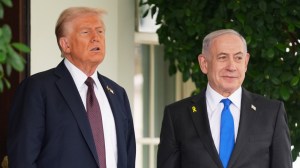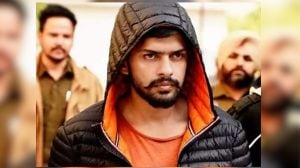‘A master strategist who always led from the front’
An excellent soldier and a thorough gentleman. That is how I remember Lt Gen J.S. Aurora. It was an opinion I formed way back in 1947 when I...

An excellent soldier and a thorough gentleman. That is how I remember Lt Gen J.S. Aurora. It was an opinion I formed way back in 1947 when I first met him at the Infantry School in Mhow. It was before Partition, he was my instructor. A stern but amiable officer who didn’t brook any nonsense, he was arguably the most-respected instructor there. But as youngsters, we used to lionise him not only for his professional prowess, but also his skills on the dance floor. In fact, he was at a club in Lahore when Partition was announced. Many deserted the party. But Aurora, I am told, continued to jive. That’s how he was. Fearless and cool-headed.
He used to always emphasise on the need to keep a level head during war. That’s the one thing he drilled into us when he was our instructor at the Staff College in Wellington. He was also a master strategist, who thought well ahead and kept the big picture in mind. Above all, he was a hands-on commander, who didn’t believe in sticking to his headquarters. Aurora used to undertake a number of field visits before firming up his plans. I still remember his visit to the FJ Sector I was commanding in October 1971. We had a sand model discussion, following which Aurora was convinced that our central sector was most likely to capture Dhaka because of easier access to Bangladesh. For one, we only had to cross a small part of the Brahmaputra unlike others who would have to negotiate a number of rivers like Meghna, Brahmputra, et al.
He was proven right on December 16 when my troops marched into Dhaka around 2.30 am. Earlier, we had succeeded in capturing Mymensing and Madhupur.
The General was a brilliant tactician. From Day 1, he made it clear he wanted a swift victory. He was dead set against a protracted war with high casualties. It was the right decision. For one, a prolonged war would have resulted in Pakistan seeking UN intervention, which would have led to a ceasefire. Then, the seventh fleet of the US had come to the Bay of Bengal, and the Chinese Army too had begun to concentrate forces on the Indo-Tibet border. During interrogation, Gen A.A. Niazi told us that Pakistan President General Yahya Khan had assured him of support from both the US and China.
December 16 was a memorable day for all of us. Since my troops had captured Dhaka, I was in charge of the surrender ceremony. Lt Gen Aurora wanted it to be a simple affair. So, we set up two chairs, one for Aurora and the other for Niazi, and a table. The Gen came in a chopper accompanied by his wife.
It was a Pakistani contingent that gave him the first guard of honour followed by the Indian troops. Aurora was happy but composed. I remember his wife almost got lost in the crush that followed as Niazi signed the instrument of surrender. So, there you can see me at the back, right behind her in the historic picture that I later got autographed by Niazi.
I continued to meet Lt Gen Aurora even after both of us retired and he was made a member of the Rajya Sabha. He was always very helpful. If you ever wrote to him, he would make it a point to reply. In fact, he forwarded several cases of gallantry winners to Arun Singh, the then minister of state for defence. His death has come as a personal shock to me.
But then, good soldiers never die, they live on.
Here’s to you, Sir
Brig Singh (retd) MVC (Bar) commanded the brigade that captured Dhaka. At present, he is chairman of the War Decorated of India





- 01
- 02
- 03
- 04
- 05


























